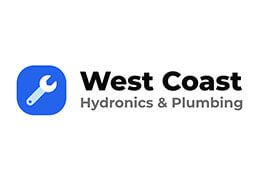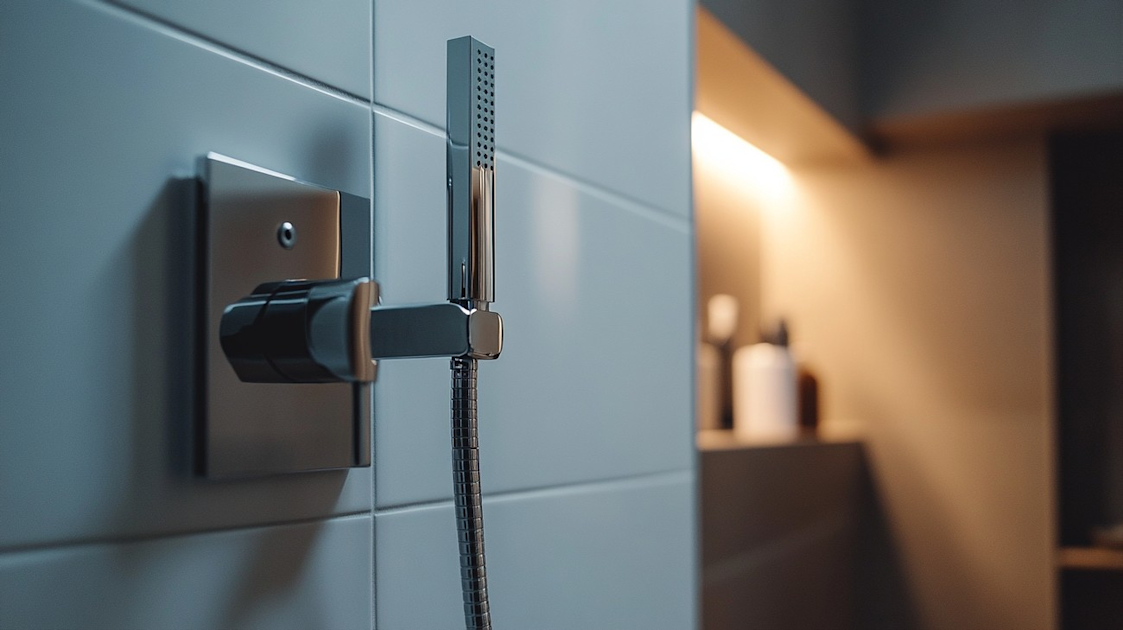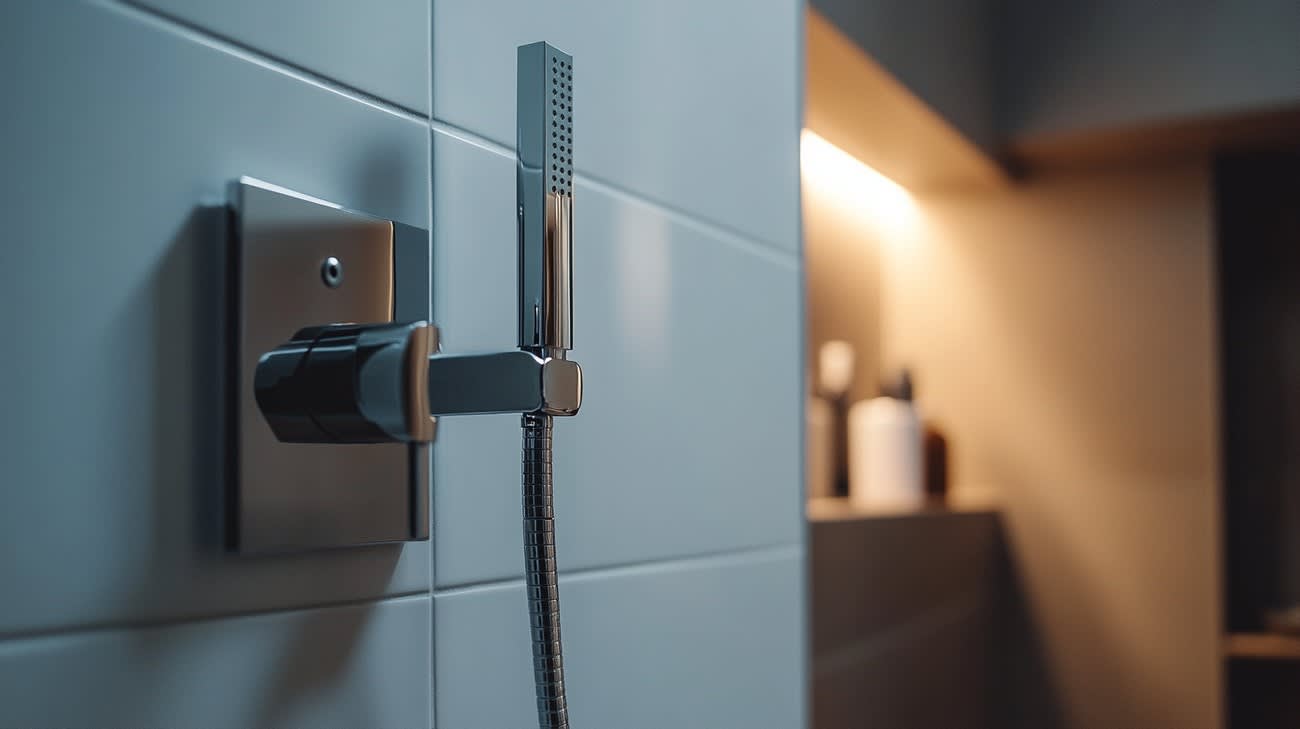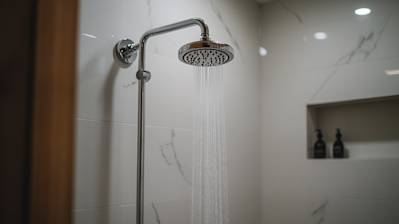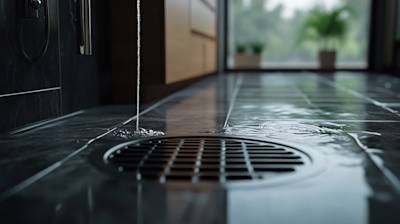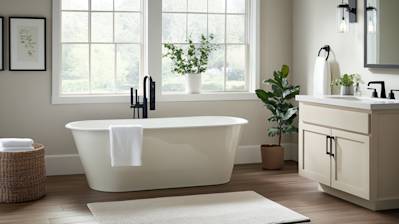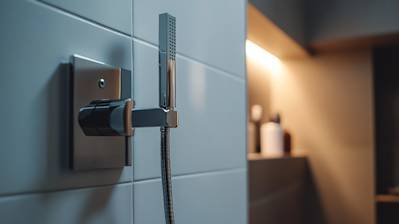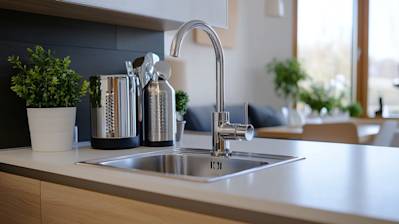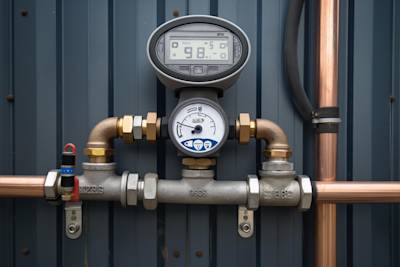If you're planning a bathroom remodel or a new installation, one of the crucial components you can't afford to overlook is the shower valve. The shower valve isn't just an ordinary control device; it regulates your shower's water pressure and temperature, making every bathing session comfortable, safe, and efficient. In this comprehensive guide, we dive deep into the world of shower valves, equipping you with all the information you need for your bathroom project.
What Are Shower Valves?
A shower valve is a crucial mechanism installed within your shower system. It controls the flow and temperature of water, and it's typically hidden behind shower walls. Shower valves come in different styles, designs, and functions, making your showering experience pleasurable. Whether you prefer a stimulating power wash or a relaxing warm rinse, the shower valve makes it all possible.
A Closer Look at Shower Valve Types
Manual Shower Valves
The simplest type, a manual shower valve, has a single lever for controlling both water flow and temperature. Its affordability and ease-of-use make it a popular choice, but it’s less refined when it comes to adjusting for fluctuations in water pressure.
Thermostatic Shower Valves
Thermostatic shower valves are the epitome of comfort and safety. Thanks to their thermostatic control mechanism, maintaining your preferred water temperature is seamless. This type of valve reactively adjusts the cold and hot water balance, which prevents scalding incidents.
Pressure-Balanced Valves
Pressure-balanced valves handle water pressure changes more efficiently. They maintain the ratio of hot to cold water, catering to sudden pressure changes and ensuring a consistent shower temperature.
Diverter Valves
For multi-outlet showers, a diverter valve is a must-have. These valves allow you to switch water flow between different outlets, such as overhead showers and handheld showerheads.
Sequential Shower Valves
Sequential shower valves boast a user-friendly design, with a single control for both water temperature and flow. The more you turn the knob, the warmer the water gets.
Choosing the Right Shower Valve: The Key Considerations
Choosing the right shower valve for your needs involves considering several elements:
- Functionality: Think about what features you need. Do you want to control temperature and flow separately, or is a single control fine for your needs?
- Compatibility: Ensure your new shower valve is compatible with your existing plumbing and water system.
- Design and Aesthetics: Shower valves come in several styles, from modern, simplistic designs to more traditional ones. Seek one that suits your bathroom’s design theme.
- Budget: Shower valves vary in prices, depending on their features and brands. Set a budget, but remember that investing in a good-quality valve can save you trouble and money in the long term.
Shower Valve Installation and Maintenance
Most homeowners choose to leave the installation of shower valves to professionals, due to their often complex nature and requirement for precision. However, if you're confident in your DIY skills, take the following steps:
- Turn off the water supply: Always the first step when dealing with plumbing.
- Access the valve: This may involve opening up the shower wall.
- Remove the existing valve: You’ll need wrenches and potentially other tools for this.
- Install the new valve: Follow the manufacturer’s instructions carefully.
- Check for leaks: Before you close up the wall again, turn the water back on and make sure all seals are holding.
Proper maintenance can significantly increase your shower valve’s lifespan. Regular cleaning, avoiding harsh chemicals that may corrode the valve's components, and promptly fixing any leaks can all contribute to long-lasting operation.
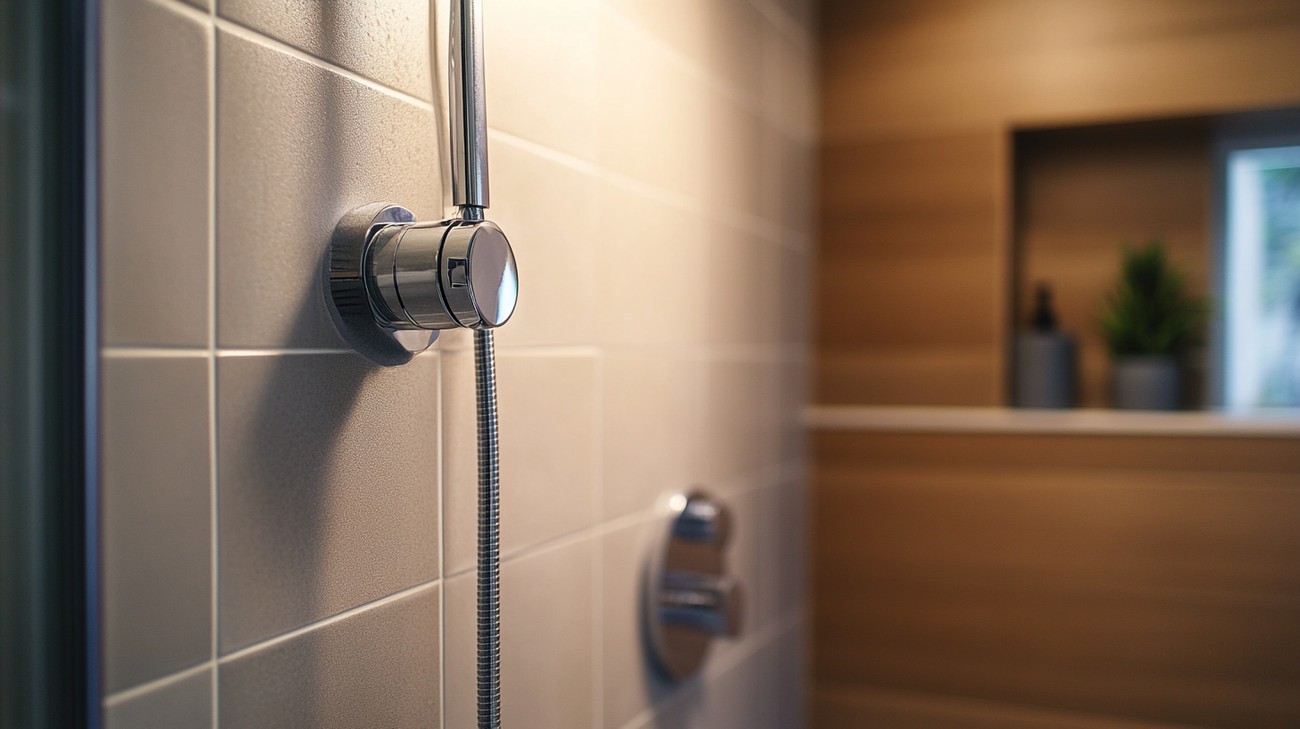
Frequently Asked Questions about Shower Valve
What are the Different Types of Shower Valves?
Technically, there are four basic types of shower valves: pressure-balancing valves, thermostatic valves, diverter valves, and transfer valves. Pressure balancing valves maintain a balanced water pressure, while thermostatic valves regulate the temperature. Diverter valves divert water from one outlet to another, like a faucet to a showerhead. Meanwhile, transfer valves allow you to switch between several shower outlets.
How Do I Know if My Shower Valve is Bad?
There are several signs that could indicate a bad shower valve. Some common symptoms could include water temperature fluctuation, leaking from the shower handle, a loose shower handle, inability to completely shut off water, or reduced water flow. If you experience any of these issues, it might be time to consider replacing or repairing the shower valve.
How do I Choose the Best Shower Valve?
When choosing a shower valve, there are several factors to consider. The type of shower system you have could influence your valve choice. It's also essential to consider the style and aesthetics, as the valve should match your bathroom décor. Finally, you should consider the materials and quality construction of the shower valves which could determine their longevity and durability.
How Often Should I Replace a Shower Valve?
The lifespan of a shower valve largely depends on the quality of the valve, the hardness of your water, and how frequently the shower is used. On average, a good quality shower valve should last about 20-30 years. However, if you start experiencing problems, it's time to consider a replacement.
Can I Install a Shower Valve Myself?
Yes, with the right tools and a basic understanding of plumbing, it's possible to install or change a shower valve by yourself. However, we recommend hiring a professional to handle the installation, especially if you're not experienced with DIY plumbing work. It's crucial to ensure proper installation to prevent leaks and maintain optimal functionality.
Will Any Shower Valve Fit My Shower?
No, not every shower valve will fit your shower system. Various systems require different types of valves. For instance, a tub and shower combination will need a diverter valve. Therefore, you need to determine your shower system type, the size of your valve connections, and the brand compatibility before purchasing a new shower valve.
How Much Will it Cost to Replace a Shower Valve?
The cost for shower valve replacement can vary widely based on factors like the cost of the new valve itself, the labor charges, and the extent of the plumbing changes needed. On average, you can expect to pay anywhere from $150 to $350 for a professional to replace your shower valve, including the cost of the valve.

Pros of Shower Valves
Enhances Shower Experience
Accurate Temperature Control
Shower valves help in providing precise temperature control in the shower. They have thermostatic control that ensures a stable temperature throughout the shower, minimizing any risk of accidental scalding.
Water Pressure Control
Shower valves can be used to adjust the water pressure according to personal preference. The ability to control the water pressure means that you can have a high-pressure power shower or a gentle rainfall shower experience, depending upon your mood.
Offers Versatility
Facilitates Multiple Accessories
Shower valves cater to different shower accessories. Whether it's the overhead rain shower, handheld shower, or body sprays, a shower valve allows you to use all these accessories either individually or simultaneously.
Flexibility With Shower Systems
Shower valves enhance the flexibility of using different shower systems. They are compatible with both mixer showers that combine hot and cold water supplies, or digital showers, offering a modern touch to your bathroom.
Easy Installation
Shower valves come in a variety of models, many of which are easy to install. You can choose from concealed shower valves that hide all pipework behind the wall for a neat, minimalist look, or exposed valves that are easier to install and maintain, as they sit on the surface of the wall.
Saves Water
Shower valves integrated with volume control helps in reducing the water flow rate, thereby conserving water without compromising on shower comfort.
Cons of Shower Valves
Not Ideal for All Households
Requirement of Good Water Pressure
Shower valves require a fairly good water pressure to operate correctly. If your house has low water pressure, a shower valve might not deliver its best performance. In such cases, you may need to install a separate pump, which can add to your expenses.
Specific Hot Water Systems
Shower valves, especially those which combine hot and cold water supplies, may not be suitable for some hot water systems. In homes with gravity-fed systems, where there is less pressure in the hot water supply, a pressure-balancing valve might not function properly.
Installation and Maintenance Challenges
Skilled Installation Process
Although many modern shower valves are easy to install, some models, particularly concealed ones, may require skilled tradespeople to install them properly. This can add to the overall cost and time of your bathroom renovation.
Difficulty in Repair and Replacement
If a shower valve gets damaged or requires replacement, the entire process can be challenging and time-consuming, especially in the case of concealed valves. Since these valves are hidden behind the wall, it can involve breaking and re-making the wall.
Cost
Shower valves, especially the high-end models with additional features like thermostatic and pressure-balancing technology, can be quite expensive. The cost of installation and potential need for future servicing or replacement can also be significant.
Lack of Directions
Some shower valves come without user-friendly directions. This can complicate both the installation process and usage, particularly if you're trying to self-install or if multiple shower zones are being controlled by the valve.

Myths and Misconceptions About Shower Valves
When it comes to shower valves, there are quite a few misconceptions and myths fluttering about. From the belief that all shower valves are alike to the notion that installation is a breeze, it’s vital to separate truth from fiction for your own safety and for proper functioning. Let's clear up these myths one by one.
Myth 1: All Shower Valves are the Same
Detailing the Difference
It would be a flat out falsehood to claim that all shower valves function in the same way or are interchangeable. There are numerous kinds of shower valves, each with specific features and capabilities, serving a unique purpose. The primary types are pressure balance valves, thermostatic valves, and diverter valves.
Pressure balance valves maintain a balanced flow of hot and cold water, even when other water outlets in the house are used simultaneously. On the other hand, thermostatic valves regulate water temperature only, keeping it constant irrespective of changes in water pressure.
Lastly, diverter valves are used to direct water flow from one outlet to another like from a faucet to a showerhead. Considering the varied functionalities, the assumption that all valves work the same is a significant misconception.
Myth 2: The Bigger the Shower Valve, the Better
Busting the Size Myth
Bigger does not always mean better, especially in the domain of shower valves. The valve size should correspond to the shower system requirements. An oversized valve might be a waste of money on purchase and installation. Furthermore, it can also create troubling compatibility issues with the existing plumbing system.
If your water supply line is smaller than the valve inlet, it may not yield the high flow rate that a larger shower valve offers, making the extra cost futile. A professional plumber can guide you on what valve size would be ideal given your specific household conditions.
Myth 3: Shower Valve Installation is DIY
Tackling Installation Perceptions
While it’s true that many aspects of home maintenance and smaller improvements can be self-taught, the installation of shower valves should be left to professionals. Shower valves are intricately linked to your home’s broader plumbing network and must be installed correctly to avoid leaks, bad water flow, and temperature inconsistencies.
An improper shower valve installation could cause extensive water damage over time, leading to costly repairs. So, it’s much wiser to have this task executed by a seasoned plumber, despite the appealing notion of saving money on labor costs with a DIY approach.
Myth 4: Any Material Goes
Material Matters
Not all shower valves are created equal, and this extends to the materials from which they are made. Some people might believe that cheap plastic valves work just as well as those made from stainless steel or brass. This could not be further from the truth.
The durability and longevity of your shower valve are heavily dependent on the material quality. Cheap plastic valves can wear out quickly or crack, causing leaks. High-quality materials like solid brass, on the other hand, tend to last longer and withstand high water pressure better.
Myth 5: Shower Valves Never Require Maintenance
Dispelling the Maintenance-free Myth
Like any other component in your house, shower valves also require routine maintenance. Over time, shower valves can develop a buildup of minerals, leading to blockages, corrosion, and functional abnormalities. Regularly cleaning and periodically replacing worn-out components will keep your shower valve and the entire shower system in great condition.
Ignoring maintenance based on the belief that shower valves are fit-and-forget units can lead to unforeseen issues and hefty repair bills. Remember, proactive care is always better than reactive repair.
Through debunking these common misconceptions, you will be better equipped to make informed decisions about your shower valves – from selection and installation, through to maintenance. After all, understanding is the first step towards effective troubleshooting.
Summary
So, a shower valve is an essential component in any shower system. It's the mechanism that controls water temperature and pressure from the water source to your shower head. As small as it may seem, it plays a major role in ensuring you have a great shower experience. So next time you step under that refreshing spray, remember there's this small gadget playing a significant role behind the scenes.
Think about it: whether you like your showers hot or cold, a shower valve is the feature that makes it all possible. If you've ever felt the chill of a cold shower on a winter's morning or the burn of a hot shower when you least expected it, then you've experienced first-hand what can happen when your shower valve misbehaves. So basically, a well-functioning shower valve is a key player in ensuring hassle-free and comfortable showers.
Lastly, maintaining the health of your shower valve is pretty important. Just like other bathroom fixtures, it needs care and attention. If you notice any issues such as the water not being warm enough or there being low pressure, it might be due to a problem with the shower valve. Don't ignore it because a small issue can grow into a large problem. In the grand scheme of things, proper functioning of your shower valve maintains the overall longevity of your bathroom fixtures.
About West Coast Hydronics & Plumbing
Welcome to West Coast Hydronics & Plumbing! We're your local experts based out of exciting Sacramento, CA, committed to providing stellar plumbing and hydronics services. We pride ourselves on our comprehensive knowledge of all things plumbing and heating related, and we're known for our proficient skills and utmost professionalism. With a key commitment to satisfying our customers, we strive to complete every job perfectly and in a timely manner. We promise to keep it hassle-free, friendly, and spot on. So, for all your plumbing and hydronics needs, just remember, there's no one better on the West Coast than us!
